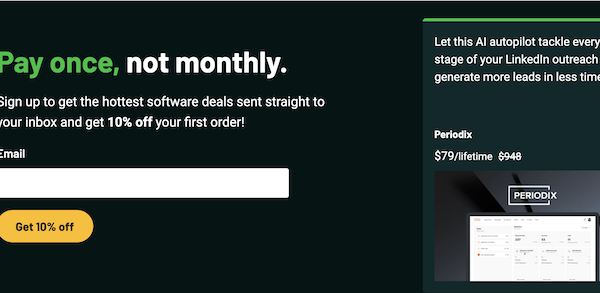If you’re a solo lawyer or in a small firm you have certain crucial challenges to meet and overcome.
Most of them are common to any small business. Maybe that’s not what you want to believe, but it’s true.
I used to believe that lawyers can’t benefit very much from business advice coming from outside the realm of practicing lawyers. But the more I started paying attention to the folks that most business owners pay attention to…
The more I realized that there isn’t very much solid business advice for small firm lawyers coming from inside our profession.
Again…
Maybe that’s not what you believe. And maybe that’s not what you want to hear.
But it’s true.
I learned more from following the advice of folks like Michael Hyatt, Peter Drucker, and even Tim Ferriss than I did from paying attention to most fellow lawyers.
Eventually, I discovered that Charlie Munger (a lawyer) had great business advice. Los Angeles attorney Jay Foonberg had some good advice also, but neither Munger or Foonberg had any useful insight about how to harness technology.
Ah, technology…
Unfortunately, in today’s tech-driven modern world you have to incorporate technology into your business. And to do that well, you need to get sensible guidance on how to use technology.
That’s hard advice to get from wild-eyed tech zealots. Their advice is some variation of “draw the owl,” or whatever misguided mishmash is spewed out at major law-tech conferences.
Of course, you can now get misguided advice from tech-zealots presuming to be business advisors without going to a conference.
For example, the folks at Lawyerist (whom I like personally, but whose advice I don’t feel compelled to reflexively embrace and effusively praise) have a new book out.
The book is called The Small Firm Roadmap: A Survival Guide to the FUTURE of Your Law Practice.
Obviously, many lawyers believe that the survival of their practice is threatened. And so what kind of good survival advice might we find in the book?
Well, to be honest, there’s a lot of great advice. I’d say that I probably agree with 70% of the advice.
But then there’s the other stuff, which in many cases is seriously misguided. And I’ll get to that stuff in a bit, but first here’s some important background.
The book has four authors. The main two are Aaron Street and Sam Glover, the two founders of Lawyerist.
Aaron went to law school, but never practiced law. He’s a smart guy and has done lots of cool stuff, but he wasn’t ever in the trenches of law practice. His resume seems more grandiose than nuts & bolts.
Sam graduated from law school in 2003, and started a solo practice in 2005 after two short stints working for other lawyers. He founded Lawyerist with Aaron in 2009. He shut down his solo practice in 2014 (all this according to LinkedIn)
I drill into Sam & Aaron’s background to remind you that when you take advice from someone, especially business advice, it’s important to do due diligence. And one might reasonably wonder how valuable Aaron and Sam’s advice might be given their limited experience in running an actual law practice.
Now, that said, one thing that’s undeniable: Sam and Aaron definitely learned how to build a popular legal website, and use it to monetize sponsorships from legal tech companies who wanted to run ads to their audience.
That’s a legitimate business, no doubt.
The question is: how much of their business advice is helpful for small firm lawyers. Like I said, earlier, I believe that most of it is solid advice.
But here’s an example of something flat out goofy. It comes from Chapter 9 of their book (a chapter on “Client Acquisition”), where they address how to use Twitter in marketing.
Yes, Twitter. (*rolls eyes*)
And here’s what they say…
“Take Twitter, for example. Many lawyers hear that Twitter is a good marketing tool. So they join. Then, without bothering to learn any best practices…[the lawyers blast out lame messages].”
Let me break down how this advice is misguided (although you probably already know)…
Your marketing strategy should NOT rely on Twitter AT ALL. An effective, practical marketing system is NOT going to be about sending the right tweets.
Anyone who purports to be giving you business advice, and who spends any time at all mentioning Twitter, is possibly misguided.
So…
Bottom line regarding Twitter: Do not use it to market…
Unless you have managed to put in place all the other important aspects of your law practice. Then you can try using it to compliment what you have in place that’s more foundational.
That’s the correct advice regarding Twitter.
But, given that Aaron and Sam are tech-enthusiasts who embraced Twitter early and often, they don’t see a problem with other lawyers spending time using Twitter to market their practice.
So here’s the thing, if you want to keep things in proper perspective…
You’d never get this Twitter advice from Michael Hyatt (who by the way uses Twitter, but only because he’s mastered all the other elements of marketing online first).
Nor will you ever get Twitter advice from Tim Ferriss, a New York Times best selling author, young entrepreneur, and tech VC who’s worth millions.because of his business acumen.
Look, deep down you know this: proper business advice is not a hodgepodge of recommendations. The various aspects of running a business need to be properly connected and properly balanced.
When I was trying to figure out how to build my solo practice I knew I needed guidance from other folks. But I wasn’t sure what kind of guidance and who to get it from.
So, I focused on getting technology guidance because that’s what had made such a big difference for me in making the shift away from big firm practice to a solo practice. But, I knew I needed more than technology to succeed. So…
I looked for a wizened guide who understood the essentials of business and was using technology in sensible ways.
I couldn’t find that person in the law-tech crowd.
I kept thinking I’d found folks who were sensible, but then they turned out to have blind spots. They were nice people, and they meant well (i.e. benevolent fools).
But inevitably reflexive reliance on their (seeming) expertise would get me into trouble. Stuff they believed and recommended enthusiastically.
Bad advice that stemmed from a lack of experience or some cognitive blind spot.
So my advice for you is this
Beware of benevolent fools
Especially ones who are wild-eyed early tech adopters. Most of them (99%) don’t know as much about running a modern business as they think they do.
The folks at Lawyerist are Exhibit A for this phenomenon.
Sam and Aaron have an aura of success that resonates most strongly with young tech-loving lawyers who get excited by the phrase “disrupt the legal profession.”
I’d say that building a successful law practice doesn’t depend so much on disruption as adoption.
You need to find the timeless, universal elements of success and adopt those.
Adapt those essential elements to your practice, and keep refining them.
And if you want a sensible “been there, done that, and used technology as part of it” guide you should follow Michael Hyatt (think of him as a perfect blend of Tim Ferriss’ tech-savviness and Charlie Munger’s business acumen)
If you want to learn how to adapt Michael Hyatt’s principles and approach to the practice of law, then you can look to me.
But whatever you do, don’t waste time using Twitter for marketing.
Use technology to radically improve your law practice by focusing on the few core elements that have the biggest impact.







Thank you for writing this. Getting business advice from people within the industry is sometimes difficult. Love Munger and Ferris. Solid principles that one can start applying right away. I own a per diem services business in New York, New Jersey, and it was very counterintuitive for attorneys to hear what our ambitions or business model was/is. Feel free to check out my site Ernie: ZR Per Diem Attorney Services
CZ